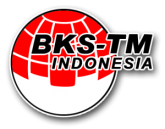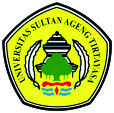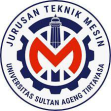- » Focus and Scope
- » Section Policies
- » Peer Review Process
- » Open Access Policy
- » Publication Ethics
- » Indexing
Focus and Scope
The journal publishes original articles covering the concepts of materials science, mechanics, kinematics, thermodynamics, energy and environment, mechatronics and robotics, fluid mechanics, tribology, cybernetics, industrial engineering and structural analysis.
The journal follows new trends and progress proven practice in the mechanical engineering and also in the closely related sciences as are electrical, civil and process engineering, medicine, microbiology, ecology, agriculture, transport systems, aviation, and others, thus creating a unique forum for interdisciplinary or multidisciplinary dialogue.
Section Policies
Articles
Peer Review Process
The peer review process is done in a closed way means reviewers and authors do not know each other. The number of reviewers involved is one person per article in the submit article process. The reviewer's judgment consists of content judgments, the appropriateness of the content to scholarly journals, and the references used. The review process takes approximately 2 (two) weeks. The reviewer's engagement principle is based on reviewer's competence in journal scholarship and involves reviewers from outside Untirta.
In reviewing the manuscript, reviewers submit the results of the evaluation using an assessment form. The reviewer will include other documents if deemed necessary. The assessment form can be downloaded below.
Download Assessment Form for Reviewer (English)
Open Access Policy
This journal provides immediate open access to its content on the principle that making research freely available to the public supports a greater global exchange of knowledge.
Publication Ethics
Publication Ethics
Publication Ethics and Malpractice Statement
FLYWHEEL : Jurnal Teknik Mesin Untirta is a peer-reviewed e-journal. This statement clarifies ethical behaviour of all parties involved in the act of publishing an article in this journal, including the author, the editor in chief, the editor, the peer-reviewer and the publisher (Department of Mechanical Engineering, Faculty of Engineering, Universitas Sultan Ageng Tirtayasa). This statement is based on COPE’s Best Practice Guidelines for Journal Editors and BERA Ethical Guidelines for Educational Research (4th ed.).
Ethical Guideline for Journal Publication
The publication of an article in a peer-reviewed of FLYWHEEL : Jurnal Teknik Mesin Untirta is an essential building block in the development of a coherent and respected network of knowledge. It is a direct reflection of the quality of the work of the authors and the institutions that support them. Peer-reviewed articles support and embody the scientific method. It is therefore important to agree upon standards of expected ethical behavior for all parties involved in the act of publishing: the author, the journal editor, the peer reviewer, the publisher and the society.
Department of Mechanical Engineering, Faculty of Engineering, Universitas Sultan Ageng Tirtayasa as the publisher of FLYWHEEL : Jurnal Teknik Mesin Untirta takes its duties of guardianship over all stages of publishing extremely seriously and we recognize our ethical and other responsibilities. We are committed to ensuring that advertising, reprint or other commercial revenue has no impact or influence on editorial decisions. In addition, the Department of Mechnaical Engineering, Faculty of Engineering, Universitas Sultan Ageng Tirtayasa will assist in communications with other journals and/or publishers where this is useful and necessary.
Publication decisions
The editor of FLYWHEEL : Jurnal Teknik Mesin Untirta is responsible for deciding which of the articles submitted to the journal should be published. The validation of the work in question and its importance to researchers and readers must always drive such decisions. The editors may be guided by the policies of the journal's editorial board and constrained by such legal requirements as shall then be in force regarding libel, copyright infringement and plagiarism. The editors may confer with other editors or reviewers in making this decision.
Fair play
Editors should strive to ensure that peer review at their journal is fair, unbiased and timely.
Confidentiality
Editors should have systems to ensure that material submitted to their journal remains confidential while under review.
Disclosure and conflicts of interest
- Editors should have systems for managing their own conflicts of interest as well as those of their staff, authors, reviewers and editorial board members.
- Journals should have a declared process for handling submissions from the editors, employees or members of the editorial board to ensure unbiased review.
Duties of Reviewers
Contribution to Editorial Decisions
Peer review assists the editor in making editorial decisions and through the editorial communications with the author may also assist the author in improving the paper.
Promptness
- Only agree to review manuscripts for which they have the subject expertise required to carry out a proper assessment and which they can assess in a timely manner.
- Acknowledge that peer review is largely a reciprocal endeavour and undertake to carry out their fair share of reviewing and in a timely manner
Confidentiality
Respect the confidentiality of peer review and not reveal any details of a manuscript or its review, during or after the peer-review process, beyond those that are released by the journal.
Standards of Objectivity
- Not allow their reviews to be influenced by the origins of a manuscript, by the nationality, religious or political beliefs, gender or other characteristics of the authors, or by commercial considerations
- Be objective and constructive in their reviews, refraining from being hostile or inflammatory and from making libellous or derogatory personal comments.
Acknowledgement of Sources
Reviewers should identify relevant published work that has not been cited by the authors. Any statement that an observation, derivation, or argument had been previously reported should be accompanied by the relevant citation. A reviewer should also call to the editor's attention any substantial similarity or overlap between the manuscript under consideration and any other published paper of which they have personal knowledge.
Disclosure and Conflict of Interest
- Not use information obtained during the peer-review process for their own or any other person’s or organization’s advantage, or to disadvantage or discredit others.
- Declare all potential conflicting interests, seeking advice from the journal if they are unsure whether something constitutes a relevant interest
Duties of Authors
Reporting standards
Authors of reports of original research should present an accurate account of the work performed as well as an objective discussion of its significance. Underlying data should be represented accurately in the paper. A paper should contain sufficient detail and references to permit others to replicate the work. Fraudulent or knowingly inaccurate statements constitute unethical behaviour and are unacceptable.
Data Access and Retention
Authors are asked to provide the raw data in connection with a paper for editorial review, and should be prepared to provide public access to such data (consistent with the ALPSP-STM Statement on Data and Databases), if practicable, and should in any event be prepared to retain such data for a reasonable time after publication.
Originality and Plagiarism
The authors should ensure that they have written entirely original works, and if the authors have used the work and/or words of others that this has been appropriately cited or quoted.
Multiple, Redundant or Concurrent Publication
An author should not in general publish manuscripts describing essentially the same research in more than one journal or primary publication. Submitting the same manuscript to more than one journal concurrently constitutes unethical publishing behaviour and is unacceptable.
Acknowledgement of Sources
Proper acknowledgment of the work of others must always be given. Authors should cite publications that have been influential in determining the nature of the reported work.
Authorship of the Paper
Authorship should be limited to those who have made a significant contribution to the conception, design, execution, or interpretation of the reported study. All those who have made significant contributions should be listed as co-authors. Where there are others who have participated in certain substantive aspects of the research project, they should be acknowledged or listed as contributors. The corresponding author should ensure that all appropriate co-authors and no inappropriate co-authors are included on the paper, and that all co-authors have seen and approved the final version of the paper and have agreed to its submission for publication.
Hazards and Human or Animal Subjects
- If the work involves chemicals, procedures or equipment that have any unusual hazards inherent in their use, the author must clearly identify these in the manuscript.
- The confidential and anonymous treatment of human participants’ data is considered the norm for the conduct of research. Authors should recognise the entitlement of both institutions and individual participants to privacy, and should accord them their rights to confidentiality and anonymity. This could involve employing ‘fictionalising’ approaches when reporting, and where using such approaches researchers should fully explain how and why they have done so. However, in some circumstances individual participants, or their guardians or responsible others, may want to specifically and willingly waive their right to confidentiality and anonymity: researchers should recognise participants’ rights to be identified in any publication of their original works or other inputs if they so wish. This statement baseb on the ethical guidance of the privacy and data storage from BERA Ethical Guidelines for Educational Research (4th ed.).
Disclosure and Conflicts of Interest
All authors should disclose in their manuscript any financial or other substantive conflict of interest that might be construed to influence the results or interpretation of their manuscript. All sources of financial support for the project should be disclosed.
Fundamental errors in published works
When an author discovers a significant error or inaccuracy in his/her own published work, it is the author’s obligation to promptly notify the journal editor or publisher and cooperate with the editor to retract or correct the paper.







